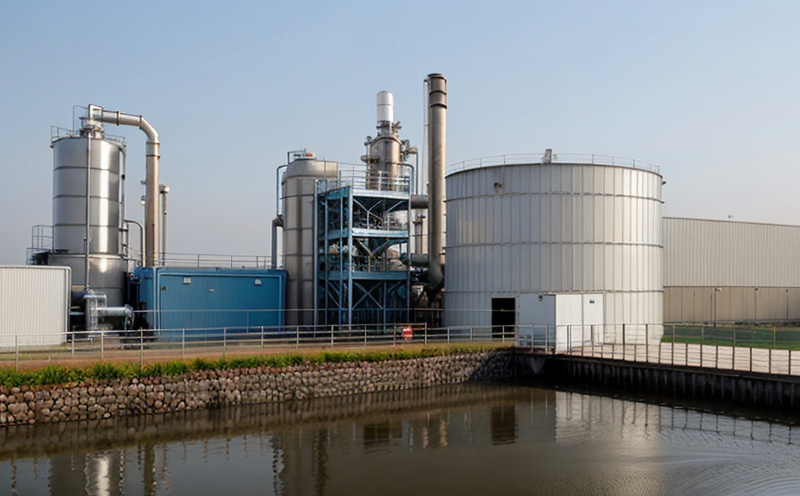JIS K0400 Testing for Industrial Pollutants in Water
The JIS K0400 testing protocol is a stringent and internationally recognized method designed to assess the presence of industrial pollutants in water. This test is essential for quality managers, compliance officers, R&D engineers, and procurement teams working within industrial manufacturing and processing facilities. The primary objective is to ensure that industrial water complies with environmental regulations and maintains high standards for safety and efficiency.
The JIS K0400 protocol focuses on the quantification of specific pollutants such as heavy metals (e.g., lead, mercury), organic compounds like polycyclic aromatic hydrocarbons (PAHs), and other contaminants that could adversely affect water quality. The testing process involves a series of complex steps including sample collection, preservation, and analysis using advanced laboratory instrumentation.
Sample preparation is critical in this protocol. Industrial wastewater samples are typically collected at various points within the facility to ensure comprehensive coverage. These samples must be handled carefully to prevent contamination during transport and storage. The JIS K0400 protocol specifies strict conditions for sample preservation, including refrigeration or freezing based on the pollutant type.
The testing process itself is highly technical and involves several steps. After sample preparation, the water sample is analyzed using advanced spectroscopic methods such as inductively coupled plasma mass spectrometry (ICP-MS) for metal ions and high-performance liquid chromatography (HPLC) for organic compounds. The results from these analyses are compared against predefined thresholds outlined in JIS K0400 to determine compliance.
The importance of this testing cannot be overstated, especially considering the environmental impact that industrial pollutants can have on water bodies. Compliance with JIS K0400 is crucial for maintaining a sustainable and responsible approach to industrial operations. By adhering to these standards, facilities can minimize their ecological footprint and ensure the safety of both employees and the public.
The process involves several key steps: sample collection, preservation, preparation, analysis using ICP-MS and HPLC, and finally, reporting results against JIS K0400 thresholds. This ensures that industrial water meets the highest standards for purity and safety, aligning with international best practices.
Applied Standards
- JIS K 0400: Industrial Water and Wastewater in Processing Facilities - Determination of Pollutants in Water
- ISO 17025: General requirements for the competence of testing and calibration laboratories
- ASTM D869-13: Standard Test Method for Determining the Total Nitrogen Content of Water by Flow Injection Analysis (FIA)
The JIS K0400 protocol is part of a broader framework of international standards aimed at ensuring consistent and reliable testing methods across various industries. Compliance with these standards not only ensures accurate results but also fosters trust among stakeholders, including regulatory bodies and the public.
Environmental and Sustainability Contributions
- Reduces pollution in water bodies by identifying and mitigating industrial pollutants early on.
- Promotes sustainable practices within manufacturing facilities, reducing ecological impact.
- Increases operational efficiency by ensuring water quality meets regulatory requirements.
- Safeguards public health by preventing contamination of drinking water sources.
The JIS K0400 testing protocol plays a crucial role in environmental protection and sustainability. By identifying pollutants early, industrial facilities can take proactive measures to address issues before they escalate into larger problems. This not only protects the environment but also enhances operational efficiency by ensuring that industrial processes are optimized for water quality.
Use Cases and Application Examples
| Use Case | Description |
|---|---|
| Initial Compliance Testing | Performing JIS K0400 tests to ensure compliance with local and international water quality standards. |
| Routine Monitoring | Conducting regular tests to monitor the effectiveness of pollution control measures in place. |
| New Facility Onboarding | Testing industrial wastewater before facility commissioning to ensure compliance with JIS K0400 standards. |
The use cases for JIS K0400 testing are diverse and include initial compliance testing, routine monitoring of pollution control measures, and new facility onboarding. By implementing these tests, industrial facilities can ensure that their operations are environmentally responsible and meet regulatory requirements.





